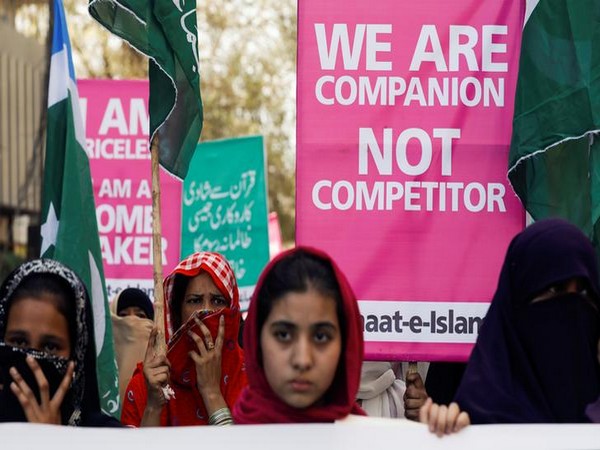

The sophisticated system of education in Pakistan for women is still an elusive dream as the government has been negligent in making relevant arrangements that can close the gender gap with significant improvements. Experts believed that the widespread poverty and unsafe social environment also create hindrances for women to seek education and gain financial security, Daily Times reported.
The experts said that women couldn’t access education or also could not access their free will and choices of life because of the widespread poverty and unsafe social environment. These issues create hindrances for women to step out, seek education and gain financial security.
Pakistan has still made no progress since its last year’ Global Gender Gap sun Index report as in this year, the country ranked the second-worst country in terms of gender parity. Pakistan ranked 145 out of 146 states in the Global Gender Gap Index. Last year, Pakistan ranked 153rd out of 156 countries on the index.
The patriarchal nature of the society and regressive cultural norms in Pakistan has led the country to stand in the second last position. In Pakistan, a woman is not given equal access to education, health, and other economic opportunities as she is considered to be a weak segment of society that should not be given the liberty to exercise her free will and choices in life, reported Daily Times.
In the Global Gender Gap Report which was released by World Economic Forum, Pakistan is placed in the 145th spot in a survey of 146 countries.
As per the statistics, Pakistan has 107 million women and the country closed at 56.4 per cent in the report’s gender gap index. The report observed, “this is the highest overall level of parity Pakistan has posted” since the launch of the global gender gap report by WEF in 2006.
Meanwhile, the report titled “25 Million Broken Promises” by Alif Ailan (an alliance that works for education reform) informed that there are currently 25.02 million boys and girls between the ages of 5 and 16 who are not in school. It has been observed that among these children, 13.7 million (55 per cent) were school girls and 11.4 million (45 per cent) were school boys.
This report suggests that boys were given more preference over girls in terms of education. Roshaneh Zafar, founder and managing director of Kashf foundation complained about the low literacy rates of women in the country. “The perceptions that investing in girls’ education does not result in the economic uplift of families deter parents from sending girls to school”, she said. She further added that there is a need to raise awareness of the importance of educating women and girls and the positive results it brings to women and their families.
And the disparity is not limited to education only, the same thing was seen in the health sector as well. The WHO report revealed that girls are at higher risk of death at 68 per cent compared to 57 per cent of boys. There is an evident gender bias present in the availability of social determinants of health, and relevant health facilities including access to safe drinking water, according to Daily Times.
“Huge health disparities exist within and between the provinces along the lines of class, rural-urban divide, gender, caste, and religion. With increasing poverty and high unemployment, people’s purchasing power with regards to healthcare is diminishing fast”, states the report.
Looking at the situation, the experts gave some suggestions where they said that Pakistan can put the entire focus on making women economically empowered. The informal economy should be regularized keeping the center, and the provision of economic opportunities to women can also bring fruitful results to the country’s economy. Those areas where women can easily participate in making themselves independent should be made convenient for them to adopt so that they can make good use of such opportunities.
Experts also said that women who want to be entrepreneurs but do not have financial support should be provided soft loans by the government so that they can establish their businesses with convenience, according to Daily Times.
According to the Daily Times citing experts that the education gap should be abridged so that men and women receive the same levels of learning. Technical skills, apart from higher education, should be imparted to women that can open all sorts of avenues for women to choose and compete. A sophisticated system of education in Pakistan for women remains an elusive dream. Neither the society supports it nor does there the government make arrangements to improve the access and standards of education. According to UNICEF, almost 22.8 million children aged 5-16 are out of school and around 60 per cent of them are females. Given the patriarchal norms being dominant in Pakistan’s society, people feel reluctant in investing in the education of a female child. Local schools emphasizing females, and their well-being during learning should be opened up by the government.
Experts further suggested that the gender disparity can also be reduced if every female gets the required health benefits equivalent to their male counterparts. Women are more susceptible to exposure to various diseases, which makes it quite convincing that they need better health conditions and services. There should be proper health care units and advanced hospitals with full provision of medical facilities. Lady doctors and female attendants should also be deployed to facilitate female patients. Aiding in improving maternal health should be the biggest concern of authorities. Fifth, developing a safe environment for women to move in society, learn and grow economically is the most important step in this direction, reported Daily Times.